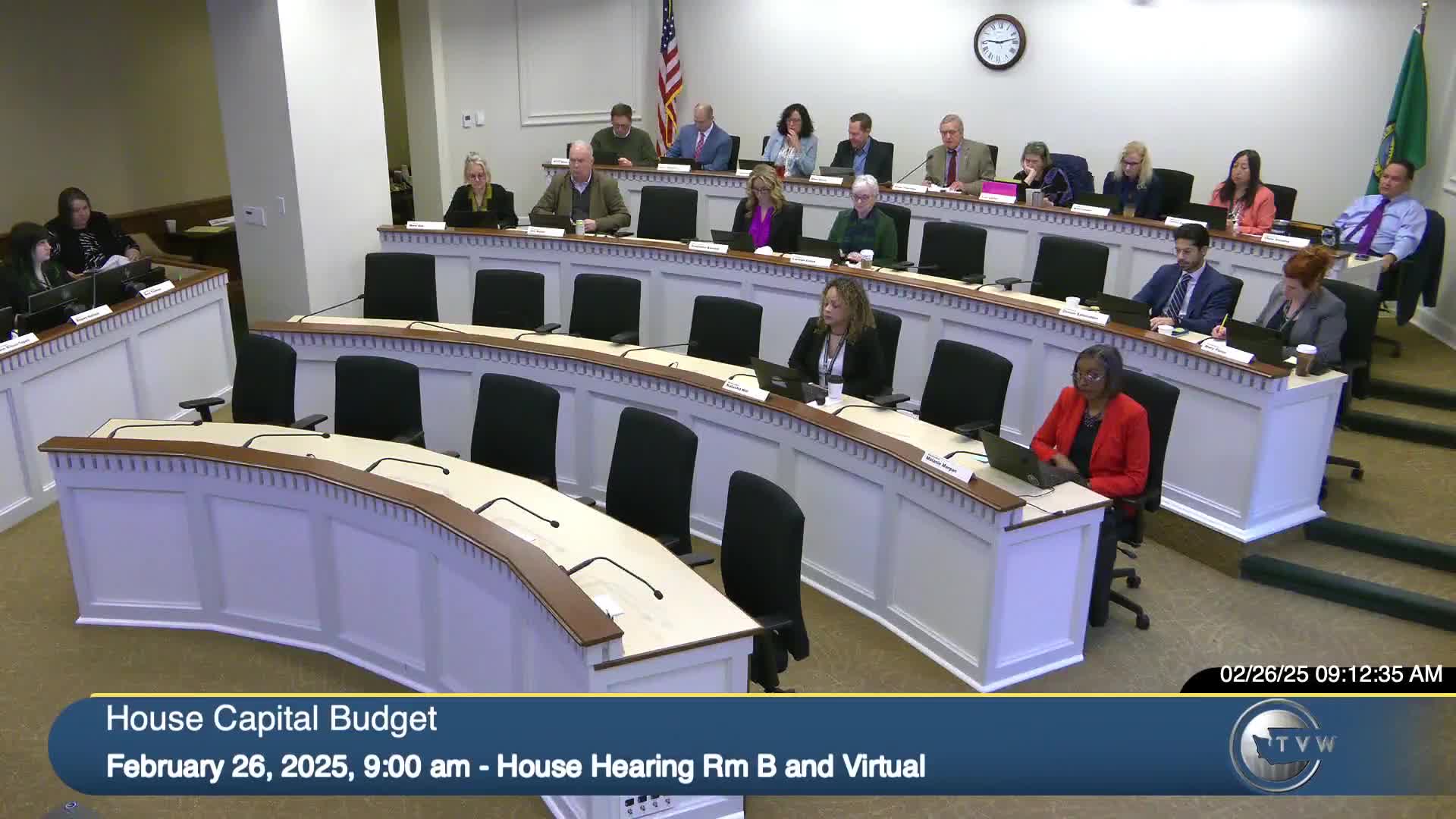Votes at a glance: what the Capital Budget Committee moved Feb. 26
Get AI-powered insights, summaries, and transcripts
Subscribe
Summary
A roundup of bills the committee reported out Feb. 26, including vote tallies and one-line descriptions of each measure and its committee action.
The Capital Budget Committee on Feb. 26 reported several bills and a concurrent resolution out of committee. Below are the formal actions recorded in the hearing, with reported outcomes and brief notes on substantive changes recorded during committee consideration.
- Substitute House Bill 15 49 (public-works responsible-bidder criteria): Moved out of committee with a due-pass recommendation. Final vote (expedited): 19–0. The second substitute changes effective dates and adjusts bidder-training verification and L&I recordkeeping requirements; it keeps the 2026 effective date for apprentice-utilization-plan provisions and extends some provisions to 07/01/2027.
- House Bill 19 67 (bonding requirements for design-build public-works projects): Substitute as amended reported with a due-pass recommendation; recorded tally announced as 17 aye, 2 nay without recommendation. The committee adopted Hatfield 196 to clarify that certain non-construction services need not be covered by performance/payment bonds.
- House Bill 20 16 (broadband state-match authority): Reported out with a due-pass recommendation, vote 19–0. Members said the bill positions the state to accept approximately $1.2 billion in federal broadband funds by enabling the state match.
- House Concurrent Resolution 4403 (rename Joel Pritchard State Library building): Reported out with a due-pass recommendation, vote 19–0. The resolution would remove “State Library” from the building’s name to reflect a remodel, renaming it the Joel Pritchard Building.
- House Bill 16 87 (social housing / development-regulation waivers for public housing authorities): Reported out with a due-pass recommendation, roll-call recorded as 11 aye, 8 nay do not pass. The bill would allow city waivers of certain development regulations for publicly owned mixed-income “social housing” developments; members debated fiscal-note language and whether Commerce already administers similar authority.
Notes: For items moved with substantive amendment packages, those amendments were described during the hearing and are summarized in the separate articles on HB 1458 and HB1491.
Ending: Committee staff and members said they faced an unusually large amendment load; the committee recessed for caucus before returning to consider final motions. Several bills reported out unanimously, while others passed on narrower margins.
